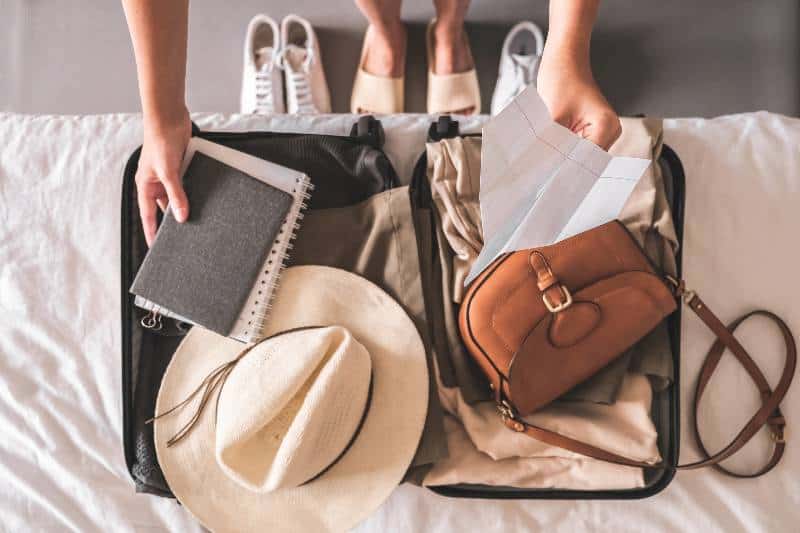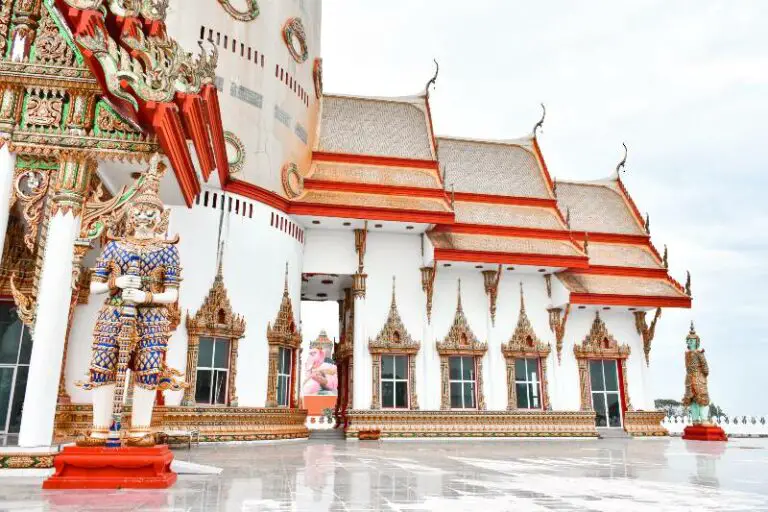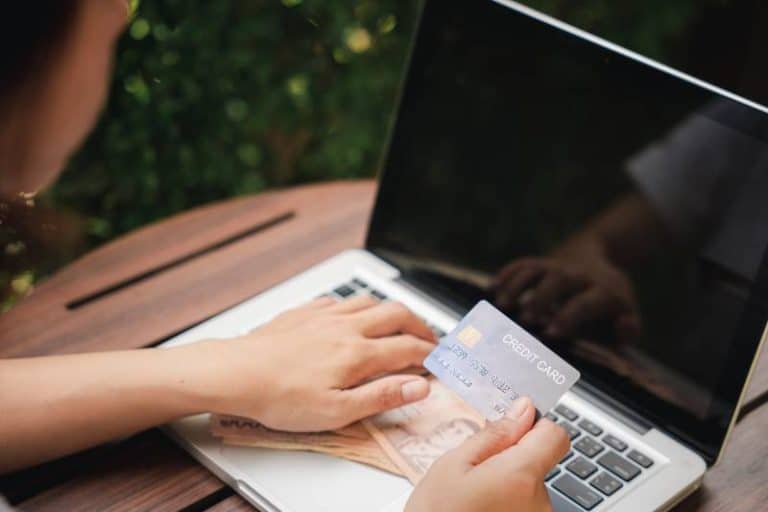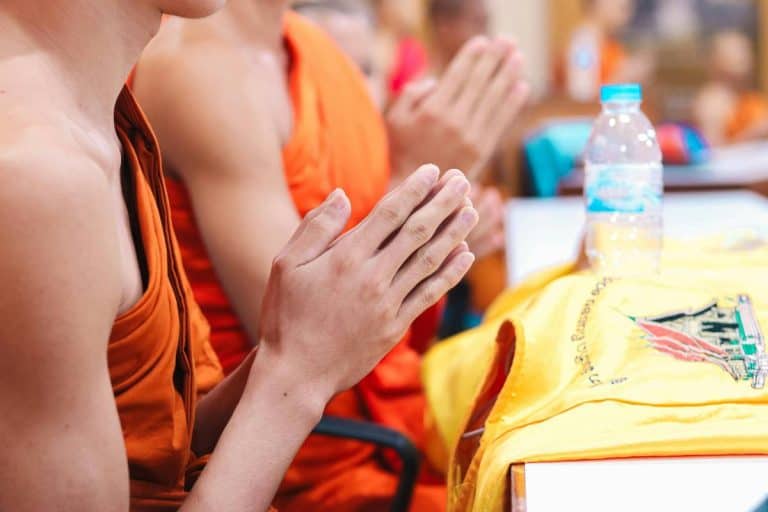Staying Safe in Thailand: A Guide for American Expats
Are you considering the move to Thailand? Every year, countless Americans make the pilgrimage to this stunning tropical country to experience its unique culture and embrace a new way of life. But there’s more to living in Thailand than just sightseeing—you also need to be aware of how best to stay safe! As an American ex-pat, it can feel daunting at first to unfamiliarizing yourself with local customs and laws, but learning the basics is essential for protecting yourself from any potential risks that may arise. In this blog post, we’ll cover everything you need to know about safety while living in Thailand as an ex-pat so you can enjoy your time abroad without worrying. Let’s get started!
Thailand Expats love the climate and inexpensive cost of living in Southeast Asia, which makes it a popular place to start a new life, particularly for retirees. The lodging is both inexpensive and modern. The public transportation and communication infrastructure are excellent. You’ll also live a comfortable life in foreign surroundings.
Key Takeaways
- Familiarize yourself with local customs and laws to stay safe while living in Thailand as an ex-pat.
- Be sure to take precautions such as avoiding unfamiliar areas at night, never taking shortcuts through alleys or back streets, and monitoring the news for any political unrest or violence.
- When exploring, always carry a copy of your passport and have contact information for the nearest U.S. Embassy or Consulate in case you need assistance.

Crime and Safety Concerns in Thailand
Overview of common crimes in Thailand
Thailand, a popular tourist destination, maintains a relatively low crime rate compared to many major cities in the United States and other countries. However, visitors should still exercise caution as opportunistic offenses such as pick-pocketing, purse-snatching, and burglaries do occur. Highly populated areas, such as bustling markets or transportation hubs, can be hotspots for such crimes. For instance, numerous U.S. citizens as well as local thai, Thai citizens, have experienced thefts in Bangkok’s Chatuchak Weekend Market and Khao San Road.
These cunning pickpockets may use razors to discreetly cut open bags and swipe belongings without being noticed. Additionally, soliciting commercial sex workers in Thailand may lead to unintended consequences, as some tourists have reported being robbed of their valuables in such situations. In light of this, it is crucial for visitors to stay vigilant and safeguard their belongings while enjoying the vibrant culture and breathtaking landscapes that Thailand has to offer.
Advice on how to stay safe in Thailand
As an American ex-pat in Thailand, here are some additional tips to help you stay safe:
Register with the U.S. Embassy
If you are traveling to Thailand, it’s a good idea to register with the U.S. Embassy. This gives them your contact information and allows them to reach out in case of an emergency or other problem.
This is especially important if you’re going to be traveling alone or in an unfamiliar place—then it’s easy for people to get lost or forget their way back home. By registering with the embassy, you can help reduce the chances that this will happen to you!
Respect the local laws and customs
The first time I went to Thailand, I was a little bit nervous about being there. After all, it’s a foreign country, and you never know what you’ll encounter when you travel somewhere new.
But after spending some time in Thailand, I can tell you that there’s nothing to worry about—at least from a safety standpoint. The locals are incredibly friendly and welcoming, especially if you’re respectful of them and their customs.
In fact, one of the most important things to do when traveling in Thailand is to respect the local laws and customs. If your host or guide tells you not to do something because it isn’t legal or culturally acceptable (like touching someone’s head), then listen! It will keep everyone safe and happy.
Stay informed
Thailand is a beautiful country, and it’s filled with wonderful people who are just trying to live their lives. The only way you can stay safe in Thailand is if you’re informed about how to do so.
You should always check the local news before you travel somewhere, and Thailand is no exception. If there’s a political disturbance or other unrest going on, then it’s best to avoid those areas until things settle down.
You should also be careful about where you go in Thailand—there are certain neighborhoods that are not safe for tourists, especially at night. It’s always best to stick with other tourists when exploring new areas, especially if those areas are unfamiliar to you or have a reputation for being dangerous.
Secure your home
Securing your home is a crucial part of staying safe in Thailand. It’s important to make sure all doors and windows are locked, and that there’s no sign of forced entry. If you have an alarm system, make sure it’s armed at all times. Be sure to keep valuables out of sight, as they can be easy targets for thieves.
Learn the local language
You’ve probably heard this one before: the best way to stay safe in a foreign country is to learn the local language. Thailand is no different. It’s pretty easy to find Thai-language classes online, and it will help you get around much more easily. Plus, knowing some Thai can help you make friends and feel more at home in your new surroundings.
Avoid risky behavior
Thailand is a great place to visit, but it’s important to be aware of the dangers that are present there. Drug trafficking is a major problem in Thailand, and many travelers have been robbed or assaulted while visiting the country. Be sure to avoid taking drugs or engaging in any other risky behaviors while you’re there—this will keep you safe and help you enjoy your trip!
And finally: always carry your passport with you at all times while traveling!
Cultural Differences and Safety Considerations
Discussion of cultural differences that may affect safety
Thailand has a rich and unique culture that is very different from Western culture. These cultural differences can have an impact on the safety of tourists and ex-pats in Thailand. Here are some cultural differences to keep in mind:
- Respect for the monarchy: The Thai people have a deep respect for their monarchy. Any perceived disrespect to the monarchy can lead to serious legal consequences, so it is important to show respect and avoid any behavior that might be considered disrespectful.
- Saving face: “Saving face” is a concept that is very important in Thai culture. It involves avoiding confrontation and maintaining harmony in social interactions. It is important to be aware of this concept and avoid any behavior that might cause embarrassment or loss of face for yourself or others.
- Religious customs: The majority of Thai people are Buddhists, and there are many religious customs and practices that are observed in Thailand. It is important to be respectful of these customs, such as removing your shoes before entering a temple or shrine, dressing modestly, and avoiding public displays of affection.
- Gender roles: Thai society is traditionally hierarchical, and gender roles are often well-defined. Men are expected to be dominant and assertive, while women are expected to be submissive and deferential. It is important to be aware of these cultural norms and to act accordingly.
- Food and drink: Thai food is generally safe to eat, but it can be very spicy and may not agree with some people’s stomachs. Drinking tap water is not recommended, and it is important to avoid drinking water or ice from street vendors.
Overall, understanding and respecting Thai culture can go a long way in ensuring your personal safety, and enjoying your time in Thailand.
Tips for navigating cultural differences
When you’re traveling, it’s important to be aware of the cultural norms in the country you’re visiting. Thailand is no exception.
Thailand is a beautiful country with a rich history and culture. But despite its beauty, it can also be an intimidating place for travelers. Here are some tips on how to navigate those cultural differences so that your trip is a smooth one!
Be aware of cultural norms
Thailand is a very different country from the United States, so be respectful of local customs and norms. You may not know what’s considered rude or inappropriate in Thailand, so ask a Thai friend to help you out.
Show respect
Thailand is a country where respect is the key to getting along. It’s important to show respect for others, but also for yourself. If you’re going to be interacting with people from Thailand, it’s important to know what they consider respectful and what they don’t.
Take some time before your trip to find out how Thais do things and what their values are. You can learn more about this in books or online, but also try talking with local friends who have visited Thailand before. The more you know about what it means to be respectful in Thailand before you arrive, the easier time you’ll have making new friends there!
Practice modesty
Thai people are generally very modest, and they expect you to be as well. In fact, it’s considered rude to expose your shoulders or legs in public. When you’re out with friends, make sure that everyone dresses appropriately so that you don’t offend anyone or attract unwanted attention.
Learn basic Thai phrases
The first step to navigating cultural differences in Thailand is learning some basic Thai phrases. These will help you communicate with locals, but they’ll also help make sure that you don’t accidentally offend anyone or accidentally end up in a situation where it would be difficult to find your way out.
Pick up a phrase book and learn some of the most common greetings and questions. If you’re staying in a hotel, ask someone at the front desk what common phrases are important for visitors to know—they’ll probably be able to give you a short list! Then practice those phrases until they feel natural coming out of your mouth.
Watch your body language
Nonverbal communication can be just as important as verbal communication in Thai culture. Be aware of your body language, tone of voice, and facial expressions, and try to communicate respect and politeness through your nonverbal communication.
Navigating cultural differences can be challenging, but with awareness and respect, it is possible to build positive relationships and enjoy your time in Thailand. Remember to be patient, open-minded, and willing to learn, and you’ll be able to navigate cultural differences with ease.
Impressing Thai women
In Thailand, the people hold a strong cultural emphasis on respect for others, and one way to demonstrate this respect is by being mindful of your public displays of affection (even if you have a Thai wife). Navigating the fine line between expressing your love and consideration for your partner and maintaining the social norms in a Thai setting can be a rewarding experience. It invites you to be more attentive to the subtle ways people connect, and can ultimately enrich your understanding of Thai manners and etiquette.
As a foreigner, it’s crucial to embrace these subtleties to help create a harmonious atmosphere and cultivate deeper connections with the local people. By being aware of your surroundings and adopting a respectful approach, you not only contribute to the culture’s core values but also lay the foundation for a memorable and enjoyable experience in Thailand for both you and those around you.
Political Climate and Safety
Overview of Thailand’s political situation
Thailand’s unique political landscape intertwines the ancient tradition of a constitutional monarchy with modern governance led by a prime minister. This dynamic provides a fascinating backdrop for the nation’s development and progress in various aspects.
The people’s admiration of their king as the chief of state embodies a cultural identity deeply rooted in tradition, whilst also embracing the dynamism of a head of government who steers the nation forward. Simultaneously, Thailand’s economic blueprint balances private freedom with centralized planning and government regulation, resulting in a fusion of innovation and stability.
Discussion of how politics can affect safety in Thailand
Politics can have a significant impact on safety in Thailand. Political instability, protests, and government crackdowns can all create an unpredictable and potentially dangerous environment for tourists and ex-pats.
One of the key ways politics can affect safety is through protests. Thailand has a long history of protests, often centered around political issues such as corruption, the role of the monarchy, and the balance of power between civilian and military authorities. While protests in Thailand are often peaceful, they can sometimes turn violent, particularly when security forces respond with force. This can create a risk of injury or harm to bystanders.
Another way politics can affect safety is through the potential for civil unrest or even civil war. Political instability can create a power vacuum that can be exploited by extremist groups or criminal organizations. This can lead to violence, kidnappings, drug trafficking and other illegal activity that can pose a threat to tourists and ex-pats.
Furthermore, political instability can lead to a breakdown in law and order, making it more difficult for the police and other local authorities to maintain public safety. This can lead to an increase in violent crime too, such as theft, assault, and robbery.
Health and Safety Considerations
Overview of health concerns in Thailand
Thailand is generally a safe destination for travelers, but there are some health concerns that visitors should be aware of. Here are some of the most common health concerns in Thailand:
- Food and water safety: Like many developing countries, Thailand has a risk of food and water-borne illnesses, such as diarrhea and typhoid. It is important to drink only bottled or boiled water, and to avoid raw or undercooked food, particularly street food.
- Mosquito-borne diseases: Thailand has a risk of mosquito-borne diseases such as dengue fever, chikungunya, and Zika virus. Travelers should take precautions to avoid mosquito bites, such as wearing long sleeves and pants and using insect repellent.
- Air pollution: Air pollution is a growing concern in Thailand, particularly in Bangkok, which has some of the worst air quality in the world. Visitors with respiratory problems may want to take extra precautions, such as wearing a mask or limiting outdoor activities on days with high levels of pollution.
- Sun exposure: Thailand has a tropical climate, and visitors may be at risk of sunburn and heat stroke. It is important to wear sunscreen, a hat, and sunglasses, and to drink plenty of water.
- Other health concerns: Other health concerns in Thailand include motorbike accidents, which are common, and alcohol and drug use, which can be a risk for travelers.
In summary, Thailand is generally a safe destination, but visitors should be aware of and take precautions against common health concerns. It is a good idea to consult a travel health clinic or doctor before traveling to Thailand to discuss any specific health concerns or recommended vaccinations.
Discussion of safety precautions for staying healthy in Thailand
Thailand is a popular destination for travelers, but it is important to take precautions to stay healthy during your trip. Here are some general food safety precautions to keep in mind:
Drink bottled or boiled water
Thailand is a beautiful country that is full of friendly people, delicious food, and stunning scenery. But it’s also one of the most dangerous places in the world for tourists, so it’s important to take some precautions when traveling here.
The Thai government recommends drinking only bottled or boiled water while in Thailand. This might seem like a hassle at first—after all, who wants to drink bottled water when there are so many delicious things to eat? But it’s imperative that you stick with this rule, no matter how thirsty you get. Many people get sick from eating food that has been prepared using contaminated water sources.
If you don’t want to bring your own bottles with you on your trip, then be sure to ask for “boiled” or “mineral” water when eating out at restaurants. It will still be cold (it’ll be served in a glass bottle), but it should be safe for consumption.
Wash your hands frequently
Thailand is a great place to travel, but it’s also a hotbed of germs and bacteria. You are at risk of picking up an infection if you do not wash your hands frequently—especially after using public toilets and handling food.
Wash your hands with soap and warm water for at least 20 seconds, or use an alcohol-based hand sanitizer if you don’t have access to soap and water.
Wear appropriate clothing
It’s important to be aware of the local climate when traveling abroad, especially in a place like Thailand—the weather there can be very different from what you’re used to.
The most important thing for staying healthy in Thailand is wearing appropriate clothing. You don’t want to get too hot or too cold, so make sure to bring some layers with you.
Thailand is also known for its bugs and insects. Make sure to pack plenty of bug spray before you go!
Use sunscreen
One of the most important things to remember when you’re traveling in Thailand is that your skin is always at risk. The sun is stronger there than it is back home, so be sure to use sunscreen—and no matter what time of year you go, that means wearing sunscreen every day.
Tips for Staying Safe in Thailand
Thailand is a beautiful country, with a unique culture, incredible people, and delicious food. But it’s also a place where you can get into trouble if you’re not careful.
Here are some tips for staying safe in Thailand:
1. Avoid crowds and areas that have been marked as unsafe by the government. You can check the Thai government’s travel website or ask your hotel or tour guide if there are any areas to avoid.
2. Keep valuables out of sight and don’t carry large amounts of cash when walking around by yourself.
3. Don’t leave food or drinks unattended at restaurants and bars, even if it’s just for a few minutes—someone may spike your drink with drugs or alcohol (and unfortunately there is no way to tell whether this has happened).
4. Be wary of strangers offering you help—they may be trying to trick you into giving money or taking them somewhere (this is especially common near tourist attractions). If someone does offer help, ask where they work so that you can verify their story later on (for example if they say they work at a hotel then ask which one).
5. Don’t accept rides from strangers, even if they seem friendly; instead, try using public transportation like buses and trains.
Pro tip: Don’t forget to use these apps that are essential when you’re in Thailand! This is going to help you a lot in navigating the country and finding your way around.
Is It Safe To Live In Thailand As An American FAQs
What are some health and safety concerns to be aware of in Thailand?
There are many health and safety concerns to be aware of in Thailand, including the risk of dengue fever and malaria. In fact, Thailand is among the 30 most highly endemic countries in the world.
When you’re traveling in Thailand, it’s important to take precautions and get vaccinated against these diseases before you go. Be sure to ask your doctor about the best way to protect yourself from mosquito bites when you’re traveling.
Another health concern that travelers should be aware of is food poisoning, especially if you’re eating street food or local dishes at restaurants. It’s also important that you wash fruits and vegetables before eating them because they may have been sprayed with pesticides.
What should I do if I become a victim of a crime in Thailand?
If you become a victim of a crime in Thailand, you can report it to the police.
The police will take down your details and ask if you have any witnesses or a camera that recorded the incident. They may also send you for medical treatment or ask for photographs of your injuries.
If possible, try to get photos or videos of the scene before leaving it as evidence. This can help identify where exactly the crime took place and who was involved.
To make things easier during an investigation, try to be polite to the police officers who are investigating your case. Do not get angry with them or argue with them about what happened because this could make things more difficult for you later on when they need to give evidence in court against someone accused of committing a crime against you.
Are there any areas in Thailand that are considered unsafe for Americans to live in?
The U.S. Department of State has warned against traveling to the Yala, Pattani, Narathiwat, and Songkhla provinces in Thailand’s southern region due to ongoing ethnic and racial tensions in the area.
What precautions should I take to stay safe in Thailand?
First and foremost, always be aware of your surroundings. While Thailand is a very safe country and place to visit, it’s also one of the most popular tourist destinations in the world. That means there are a lot of people who may not have your best interests at heart. In particular, watch out for pickpockets and other thieves who might try to take advantage of tourists. Be sure to keep your valuables close by and hidden from view while traveling around Thailand—especially if you’re visiting Thailand’s crowded areas like Bangkok or Chiang Mai.
Can I trust the police in Thailand to help me if I need assistance?
It’s true that Thai law enforcement isn’t always as efficient as we’d like it to be, but that doesn’t mean they’re not willing to help. In fact, the police in Thailand are some of the most dedicated workers I’ve ever met.
If you suspect someone has stolen your property or is harassing you in any way, don’t hesitate to approach a local police officer and ask for their help. They’ll do whatever they can to resolve your issue as quickly as possible.
How can I prepare myself for living in Thailand from a safety perspective?
Thailand is a beautiful country, and it’s no wonder that you’re considering moving there. But before you do, you’ll want to consider some safety precautions.
While the convenience of an online application for a Thai tourist visa simplifies the process, those intending to stay longer than 30 days must visit a Thai company or embassy in their home country to secure an appropriate visa. It is crucial to remain vigilant of the expiration date, as failing to leave Thailand within 90 days post expiration can result in financial penalties or even deportation. Ensuring thorough organization and compliance with these regulations will guarantee you a hassle-free experience in exploring the fascinating wonders Thailand has to offer.
Conclusion
Now that you’re armed with the knowledge of how to stay safe in Thailand, you can rest assured that your ex-pat experience will be smooth and enjoyable. Taking advantage of local advice, alongside these safety tips, is a great way to ensure your well-being and expand your enjoyment of living in this wonderful country.
Don’t forget that the U.S. Embassy and Thai embassy are also available if ever you need assistance or if any legal matters arise while traveling abroad. By investing time into researching the culture before arriving in Thailand and following the wise counsel above, you have all the tools you need to experience a great life as an American ex-pat in one of the world’s most amazing countries!
So make sure to invest some time now into familiarizing yourself with the landscape before taking up to one year off, and then subscribe to our newsletter for even more information on living life in Thailand like a pro!






